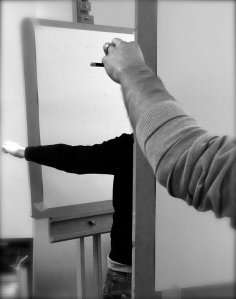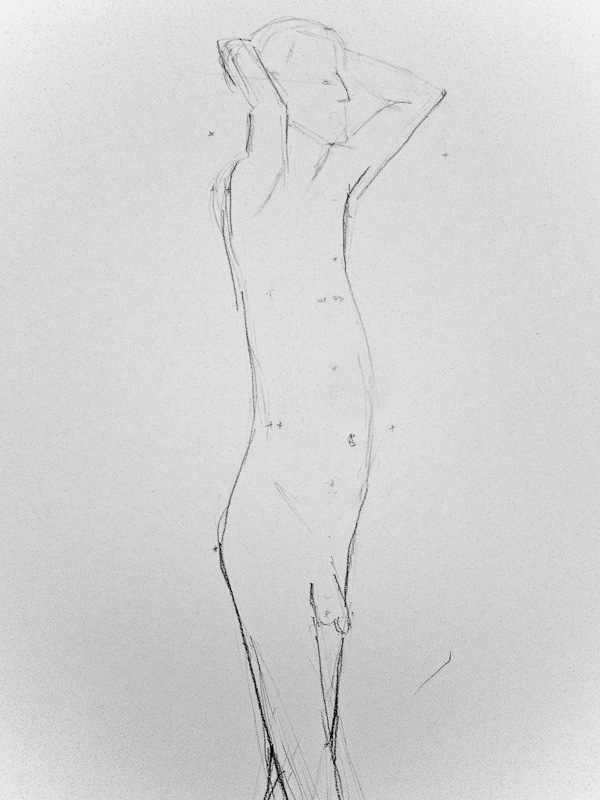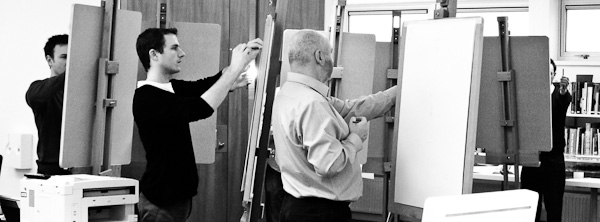
If you could give us a standing pose, Briony please. You have 7 minutes to draw the figure, try to draw the whole figure and use most of the paper.”
We heard that instruction twice at the life drawing taster session. Once at the beginning and once at the end. But the differences between the two experiences, and the results on paper, was palpable.
The training room at Fierce Earth’s offices had been transformed from Board Room to studio. An arc of easels faced a wall and two lovely chairs, recently refurbished by rookie, but talented, upholsterer Jon, were positioned opposite the easels.
The participants were a mix of colleagues, co workers and friends old and new. Some drinks and nibbles put us at our ease as we all fessed up to being a) “useless at drawing” and b) a bit terrified.
But we were in good hands. Dean gave us clear and comprehensible instructions. We set to work. Our first drawings were stiff, desperately trying to be representational and “right”. We admired each others work. Comments were supportive and friendly. We all relaxed just a little. This was not an embarrassing nightmare, but clearly everyone had room for improvement.
I won’t spoil the surprise if you are ever lucky enough to attend a session but the second full drawing was a very different experience. After a series of exercises designed to teach us not to draw – but to LOOK – we tried to recreate Briony’s standing pose on paper once more..

Concentration levels were higher and the drawings more assured – some astonishingly so. Everyone found support or encouragement from the group. A hand that looked like a hand and not a bunch of sausages. The exquisite curve of Briony’s back rendered just so – the delicious line from her nose, to her upper lip and the rosebud of her mouth traced out on the page so that you knew it was her.
Our second drawings represented small but significant victories over our previous nerves and lack of confidence.
As for my experience I am now hungry to learn more: have more techniques under my belt – to do more (I try to do a little sketch of anything in an idle moment). I thought it might be odd or embarrassing to be in such proximity to a life model. But it really isn’t. Because they are not embarrassed, so why should you be for them?
In fact if anything it really shifted my perception on the portrayal of female beauty. We’re so saturated with images of air brushed, waif-like models we have forgotten how beautiful real people are. And we rediscover that beauty by looking or by really seeing. It’s rare that you are allowed to hold your gaze on another like that in polite company. It’s a gift. So I also want to acknowledge our model Briony for giving us that gift.
Marcel Proust said “The real voyage of discovery consists not in seeking new landscapes but in having new eyes”. In two hours in that improvised studio we went on a voyage of discovery together, and are rewarded with the gift of new vision, a fresh perspective and the thirst to know more.









